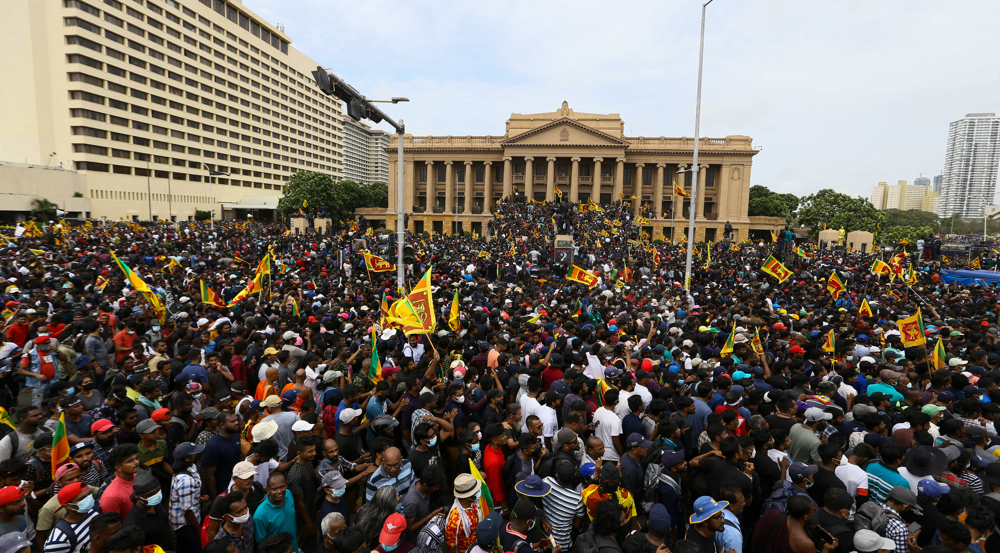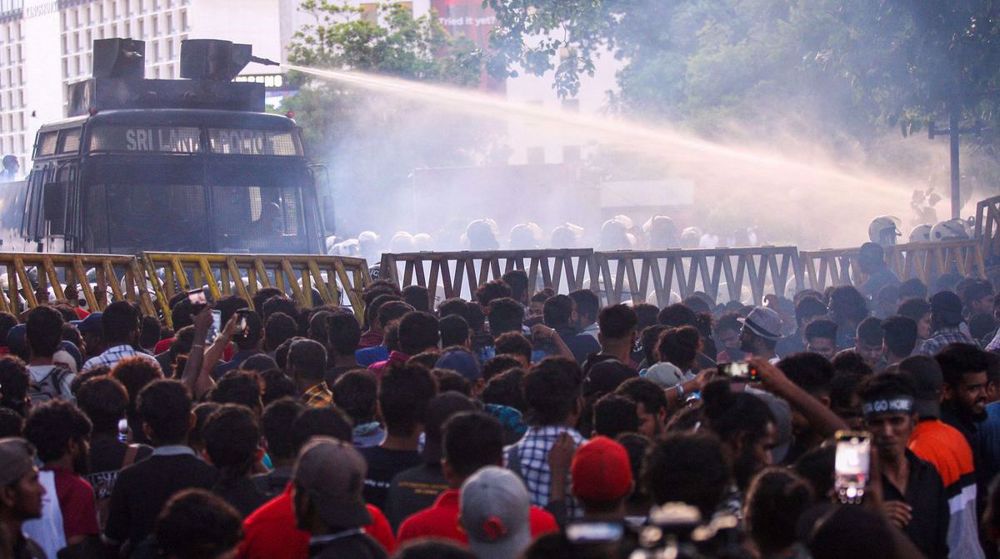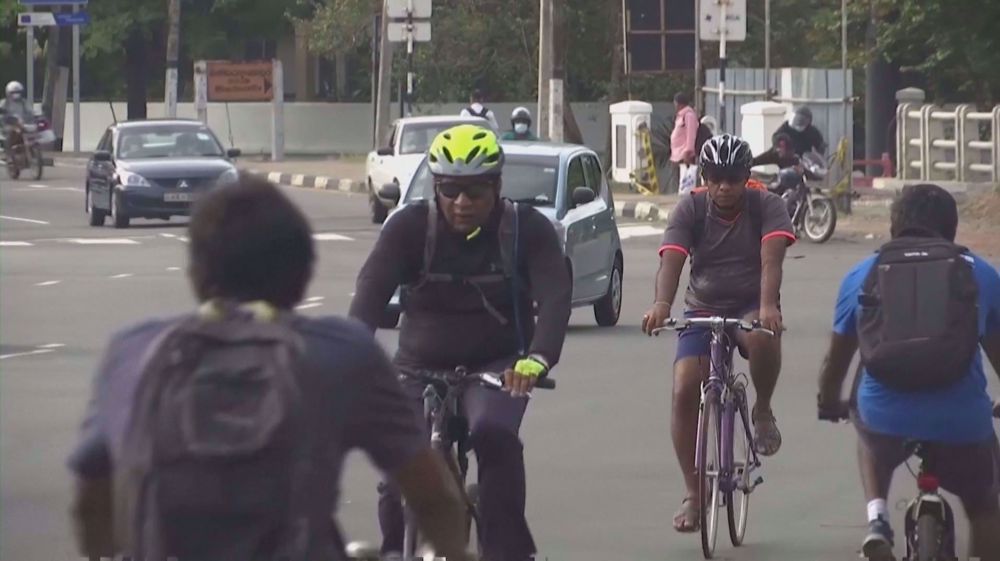Sri Lanka’s prime minister announces resignation, his residence on fire
Sri Lanka’s Prime Minister Ranil Wickremesinghe says he is willing to resign, after only two months in office, to make way for an all-party government to take over, his office says.
The country grapples with the worst economic crisis in seven decades.
The Saturday statement from his office came after angry protesters stormed the president’s residence and office in the capital Colombo.
His resignation was against the backdrop of an emergency meeting of the country's political leaders to appoint an interim all-party government. Tens of thousands of people had already broken through barricades and entered President Gotabaya Rajapaksa's residence and the nearby office.
Soldiers and police were unable to hold back the crowd of chanting protesters demanding the president's resignation. Some protesters, holding Sri Lankan flags and helmets, broke into the president's residence, video footage from local TV news NewsFirst channel showed on Saturday.
A Facebook livestream from inside the president’s house showed hundreds of protesters packing into rooms and corridors, shouting slogans against the leader. Footage of protesters standing and some bathing in the swimming pool inside the president’s home was widely circulated on social media.

"So as to ensure safety of the citizens, he is agreeable to this recommendation by opposition party leaders" to quit, Wickremesinghe's office said.
He said in a voice statement he will resign when all parties have agreed on a new government. "Today in this country we have a fuel crisis, a food shortage, we have the head of the World Food Program coming here and we have several matters to discuss with the IMF. Therefore, if this government leaves there should be another government."
Police said later in the day that protesters set the private residence of the prime minister on fire.
"Protesters have broken into the private residence of Prime Minister Ranil Wickremesinghe and have set it on fire," his office said.
Thousands of protesters also forced their way through heavy metal gates into the Finance Ministry premises and the president's seafront offices.
The island of 22 million people is struggling with its worst economic crisis since independence in 1948 amid a severe foreign exchange shortage that has limited essential imports of fuel, food and medicine.
Soaring inflation, at a record 54.6% in June and expected to hit 70% in the coming months, has heaped hardship on the population.
Sri Lanka’s leaders are seeking a $3 billion bailout from the US-dominated International Monetary Fund (IMF) and a restructuring of some foreign debt, but the desperate bid has gone unanswered.
Discontent has widened in recent weeks as the cash-strapped country stopped receiving fuel shipments, forcing school closures and rationing of petrol and diesel for essential services.
Russia downs over 40 Ukrainian drones as Putin vows 'destruction' on Kiev
VIDEO | Yemen: A bone in Israeli neck
D-8’s role in Iran’s economy after Cairo summit
China slams US as ‘war-addicted’ threat to global security
China ‘firmly opposes’ US military aid to Taiwan
VIDEO | Press TV's News Headlines
President Yoon Suk Yeol to be removed from office
At least 19 Gazans killed by Israeli airstrikes since dawn: Medics












 This makes it easy to access the Press TV website
This makes it easy to access the Press TV website